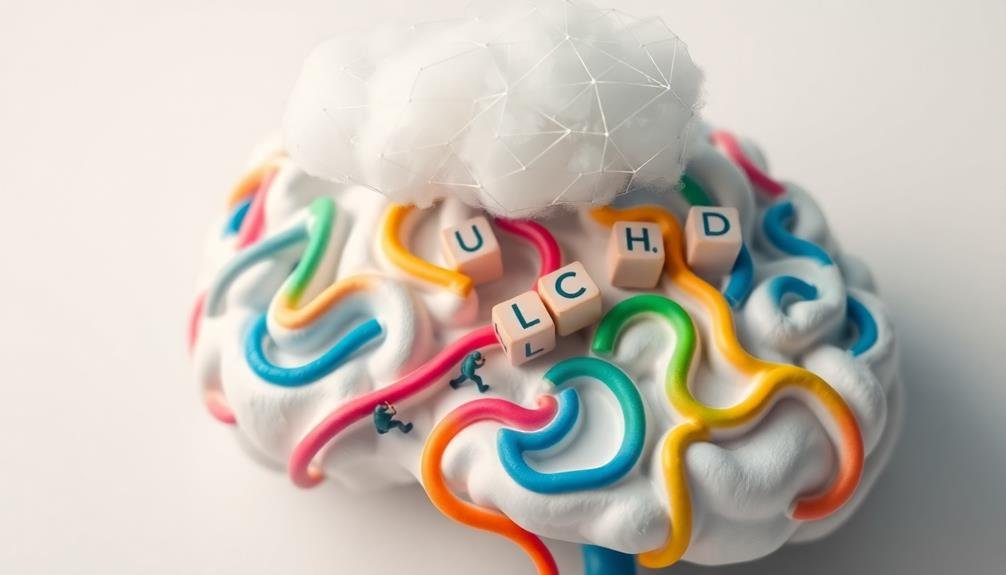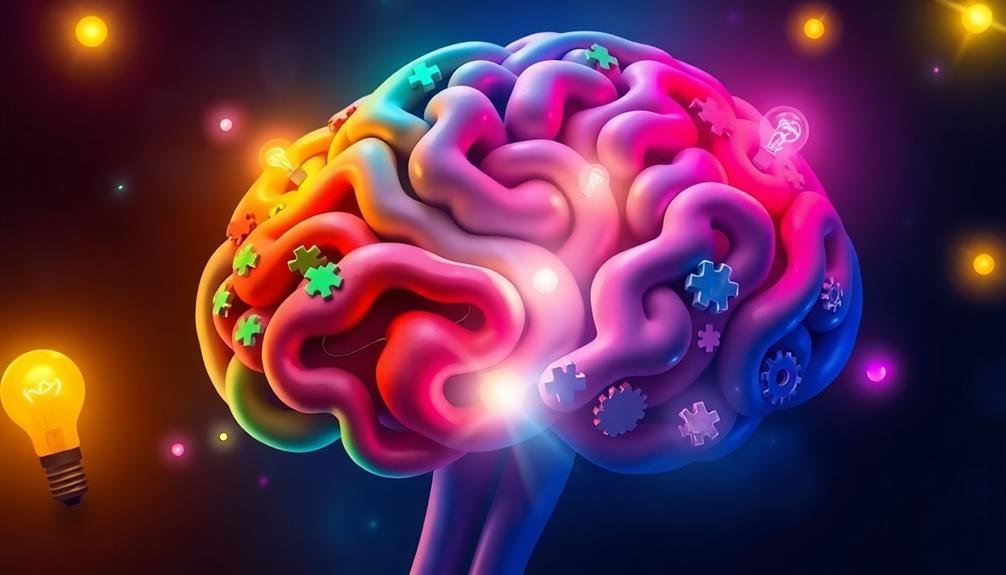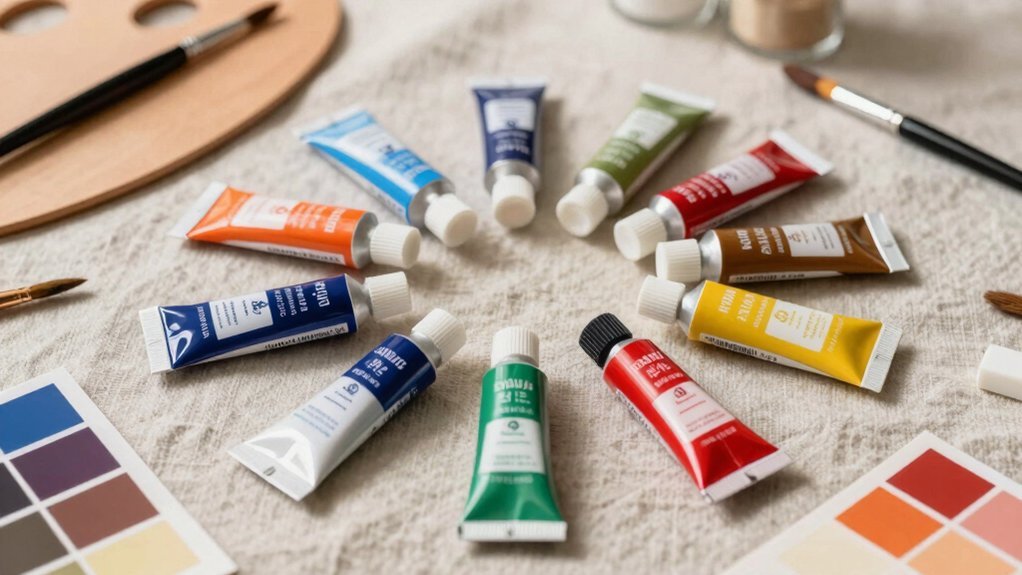Looking to sharpen your focus and unwind? Try these three brain teasers: word riddles, visual mazes, and number sequence puzzles. Word riddles challenge your linguistic skills and lateral thinking, requiring you to contemplate multiple meanings. Visual mazes test your spatial awareness and problem-solving abilities, engaging cognitive functions like memory and decision-making. Number sequence puzzles push you to recognize patterns and apply logical reasoning, developing abstract thinking. Each of these teasers offers a unique blend of mental stimulation and relaxation, providing a welcome break from daily stresses. Explore these puzzles further to reveal their full potential for enhancing your cognitive abilities.
The Riddle of Words

While many brain teasers rely on numbers or visual puzzles, word riddles offer a unique challenge that can sharpen your linguistic skills and lateral thinking. These clever wordplays force you to examine language from different angles, often requiring you to think beyond literal meanings.
To solve word riddles, you'll need to contemplate multiple interpretations, homophones, and double meanings. They'll test your vocabulary, general knowledge, and ability to make unexpected connections. You might encounter classic riddles like "What has keys but no locks, space but no room, and you can enter but not go in?" (Answer: a keyboard).
As you tackle these linguistic puzzles, you'll find yourself becoming more attuned to the nuances of language. You'll start noticing puns and wordplay in everyday conversations, enhancing your communication skills.
Word riddles also improve your problem-solving abilities, training your brain to approach challenges creatively.
To get started, try solving a riddle a day. You can find collections online, in books, or even create your own. Remember, the key to mastering word riddles is practice and persistence. Don't be discouraged if you can't solve one immediately – the "aha" moment is worth the wait.
Visual Maze Challenge
Visual mazes present a compelling challenge that tests your spatial awareness and problem-solving skills. As you tackle these intricate puzzles, you'll find yourself maneuvering through a complex network of paths, dead ends, and false leads. The goal is simple: find your way from the starting point to the finish line without crossing any walls or retracing your steps.
To excel at visual mazes, you'll need to develop a keen eye for detail and a strategic approach. Start by surveying the entire maze, identifying potential routes and obstacles. Then, work systematically, either from the beginning or the end, marking your progress as you go.
Don't be discouraged by wrong turns; they're part of the learning process. As you practice, you'll notice improvements in your focus and concentration. Visual mazes engage multiple cognitive functions, including spatial reasoning, memory, and decision-making.
They can also help reduce stress by providing a meditative, absorbing activity that takes your mind off daily worries. Challenge yourself with increasingly difficult mazes to keep pushing your mental boundaries and reap the cognitive benefits of this engaging brain teaser.
Number Sequence Puzzle

Number sequence puzzles offer a different kind of mental workout from visual mazes. They challenge your ability to recognize patterns and apply logical reasoning to predict the next number in a series.
You'll find yourself analyzing relationships between numbers, identifying mathematical operations, and thinking abstractly to solve these puzzles.
To get started with number sequence puzzles, try these tips:
- Look for simple arithmetic patterns first (addition, subtraction, multiplication, division)
- Consider alternating patterns or combinations of operations
- Pay attention to the differences between consecutive numbers
- Think about special number properties (prime numbers, squares, cubes)
- Don't overlook non-mathematical patterns (dates, Roman numerals)
As you practice, you'll develop strategies to approach these puzzles more efficiently. You might start by writing out the differences between consecutive numbers or testing various operations to see if they fit the pattern.
Frequently Asked Questions
How Long Should I Spend on Each Brain Teaser?
You shouldn't set a strict time limit for each brain teaser. Spend as long as you're engaged and challenged, but not frustrated. If you're stuck, move on after 10-15 minutes. It's about enjoyment and mental stimulation.
Can Brain Teasers Improve Memory in Older Adults?
Yes, brain teasers can improve memory in older adults. You'll find they challenge your mind, enhancing cognitive function and memory retention. They're a fun way to keep your brain active and potentially slow age-related mental decline.
Are There Brain Teasers Specifically Designed for Children?
Yes, there are brain teasers designed specifically for children. You'll find puzzles tailored to their age and cognitive level. They're often colorful, fun, and incorporate familiar themes. These teasers can help develop problem-solving skills and critical thinking in kids.
Do Brain Teasers Have Any Benefits for Mental Health?
Brain teasers can boost your mental health. You'll enhance problem-solving skills, reduce stress, and improve cognitive function. They're a fun way to challenge yourself, increase self-confidence, and provide a sense of accomplishment when you solve them.
How Often Should I Practice Brain Teasers for Optimal Cognitive Benefits?
You'll benefit most from practicing brain teasers daily, but even 2-3 times a week can boost your cognitive skills. Start with 15-20 minutes per session, and gradually increase as you get comfortable. Consistency is key for best results.
In Summary
You've now explored three brain teasers designed to sharpen your focus and help you relax. By engaging with word riddles, visual mazes, and number sequences, you've given your brain a workout while potentially reducing stress. Remember, these puzzles aren't just for fun; they're tools to enhance your cognitive abilities. Keep challenging yourself with similar exercises, and you'll likely notice improvements in your concentration and problem-solving skills over time. Enjoy the mental stimulation and relaxation these brain teasers provide!





Leave a Reply